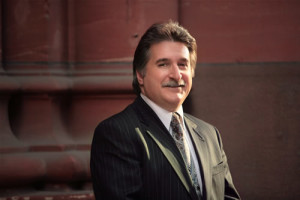Undue influence may give rise to a will challenge

Undue influence on a testator can result in a will challenge and estate litigation.
When making a will, it is important that the testator’s wishes are reflected correctly in the will. If the person granting a will is under undue influence of any kind, the will may be found invalid at a later date.
In most normal cases, if there are no suspicious circumstances, we presume that a person’s will reflects his or her true wishes. However, in some special circumstances where it is proven that the testator made the will under undue influence, the will may be invalid. Undue influence may take many forms such as acting under coercion, threat, or the exploitation of the person’s vulnerability.
Undue influence vs. persuasion
There is a fine line between coercion or mere persuasion and it is all based on the unique facts of each case. Whenever allegations of undue influence are made, the facts of the case must be carefully examined. Contesting a will due to alleged undue influence is a complex process and should be done with the advice from an estate lawyer.
For example, there have been cases where the testator lived with relatives and was fully dependant on the relatives them. If changes are made to the will, and the testator was isolated and vulnerable, the will may have been changed based on coercion.
When an elderly person is vulnerable, it is easy to imagine threats by caregivers to neglect him or her if the entire estate is not left to them. If an elderly testator is dependent on relatives or the children, it is easy to see how the weaker older individual can be taken advantage of or manipulated. Some of Charles’ recent comments published on his blog, The Sibling Fight, involve discussion on this matter.
Claims based on undue influence are complex
The testator may be physically and emotionally controlled by the people who stand to benefit from the will. There have been cases where so-called caregivers have been openly aggressive to isolate the testator from any contact with other friends or relatives. A common warning sign that there may have been undue influence is if a testator changes a previous will to benefit a caregiver who held an overwhelming degree of control over the testator.
Suspicious changes to a will may warrant an investigation deeper into the reasons for the change of mind. Whatever the circumstances of your case, you should consult with an estate lawyer when thinking about bringing a will challenge.
An estate litigation claim based on undue influence is often brought together with a claim that the testator lacked testamentary capacity. Both of these areas of estate law are complex and likely to be new to the person thinking of contesting a will. Costly mistakes can be made without legal advice. If you believe you have a claim, contact experienced estate litigation lawyer Charles Ticker who will examine the facts and provide you with practical advice.
The information on this website is not legal advice. It is for informative purposes only. Contacting us through the website, email, or telephone does not mean you have retained a lawyer. To book a consultation, call: 1-866-677-7746.
